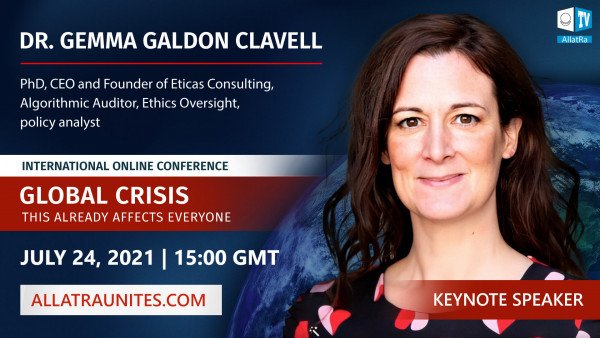Dr. Gemma Galdon Clavell
PhD, CEO and Founder of Eticas Consulting, Algorithmic Auditor, Ethics Oversight, policy analyst
Speaker Bio
Dr. Gemma Galdon-Clavell is a leading voice on tech ethics and algorithmic accountability through algorithms audits.
She is 2017 EU Women Innovators Prize finalist.
Dr. Galdon-Clavell has led research as a Principal Investigator in more than 10 large projects. She is a scientific and ethics expert at the Directorate General for Research and Innovation at the European Commission and sits on the board of Privacy International and Data & Ethics.
She completed her PhD on surveillance, security, and urban policy at the Universitat Autònoma de Barcelona, where she also received an MSc on Policy Management and was later appointed Director of the Security Policy Programme at the Universitat Oberta de Catalunya (UOC). Previously, she worked at the Transnational Institute, the United Nations’ Institute for Training and Research (UNITAR) and the Catalan Institute for Public Security. She teaches topics related to her research at several foreign universities. Additionally, she is a regular analyst on TV, radio, and print media.

Speech
Thanks for the invitation! My name is Gemma Galdon Clavell. I run an organization called Eticas. Our mission is to protect people in technology processes. One of our main services is algorithmic auditing.
One of the things that we realized is that AI is appearing everywhere around us. It's making more and more sensitive decisions about our lives. So we are aiming to bring light into the world of artificial intelligence through specific mechanisms like auditing that can provide answers to the questions that people have about how their data is being managed to make the decisions about their lives.
We do have tendencies that are concerning. There is a... Data is concentrated in the hands of a few private corporations. The public sector has lost control of how our data is being managed. And so we see a superpower of private technology companies that are establishing themselves as the rulers of this data world. And that is concerning and that's something that already exists.
There’s a dynamic by which certain private actors are taking control of the technology market. And this technology market is making more and more serious decisions about daily lives, access to service, access to work, medicine, health. This should be in the control of democracies in the population and not technology companies that don't have to provide explanations to anyone.
One of the issues that we have is the transparency of the algorithm. So these algorithms are making more and more decisions about our lives and we don't know how they work. And oftentimes we don't even have ways to knowing how they work. Anywhere outside of Europe, there are no laws that protect people and that help people get access to those algorithms.
Even in Europe, where we have laws, no one is complying with these laws. So you have a law, you have a right, but you cannot implement it, you cannot really use it in practice, because no company has a transparency policy when it comes to algorithms. That is dangerous because you may be fired from your job because of an algorithm and you don't know why.
Another risk is the risk to the economy. A lot of people say that data is the new oil. That is a really bad analogy. Data is not like oil. With oil, with a little bit of oil, you can get some value. With a little bit of oil, you can have some gasoline and maybe have a small transport company or develop something. With a little bit of data you cannot do anything. So it's a monopoly market, where one actor seizes everything, all the value. So you’re only winning in the market if you have all the data.
So it's basically “winner takes all.” Only one can win the battle for the data of the world.
And that is problematic because basically you're not creating an ecosystem, you're not generating value for society. You're just generating value for one entity. And all the other entities that try to make it there basically go bankrupt in the process. So you are creating a lot more destruction in the economy that you're actually creating, building new markets and new economic ecosystems.